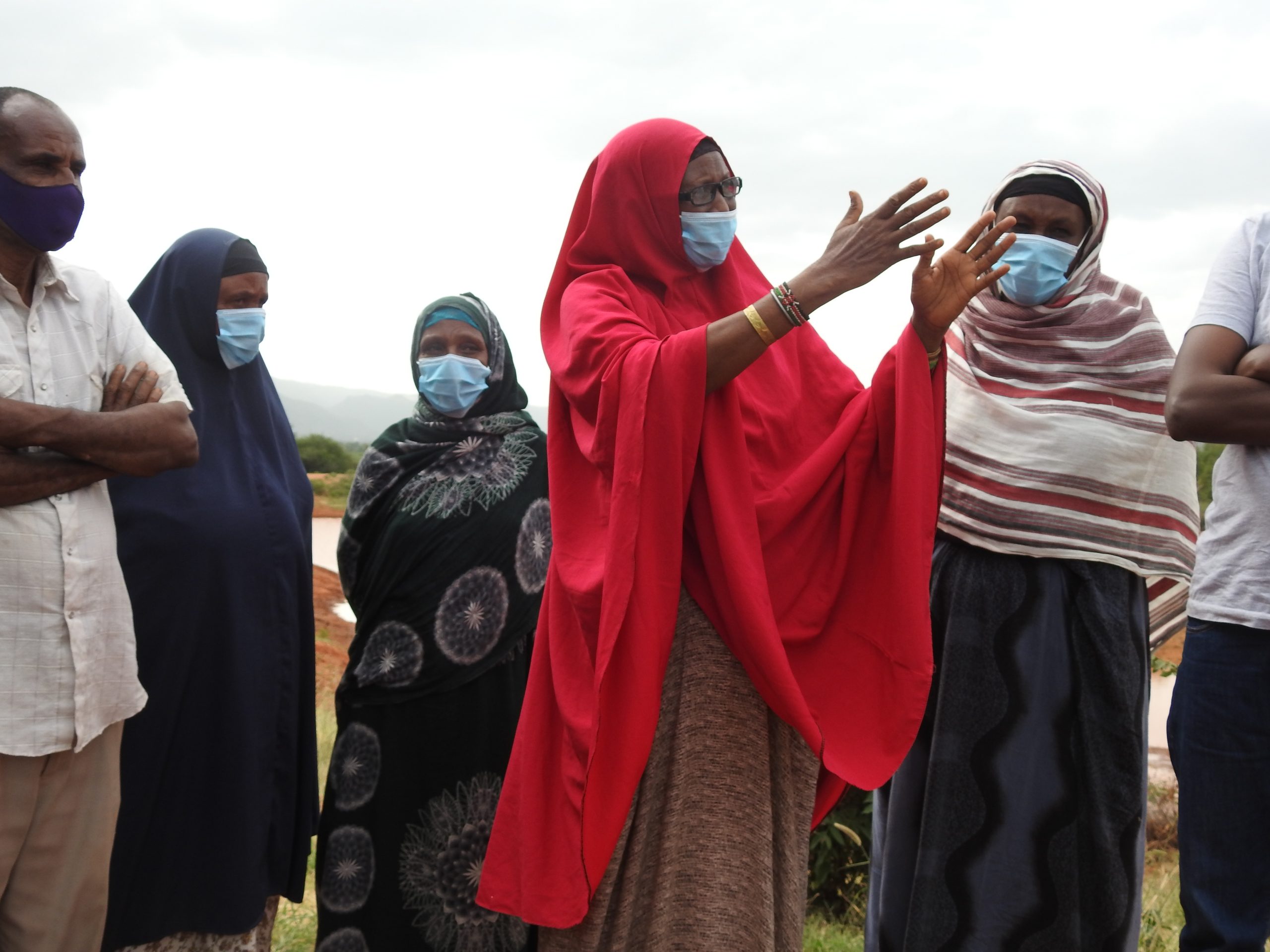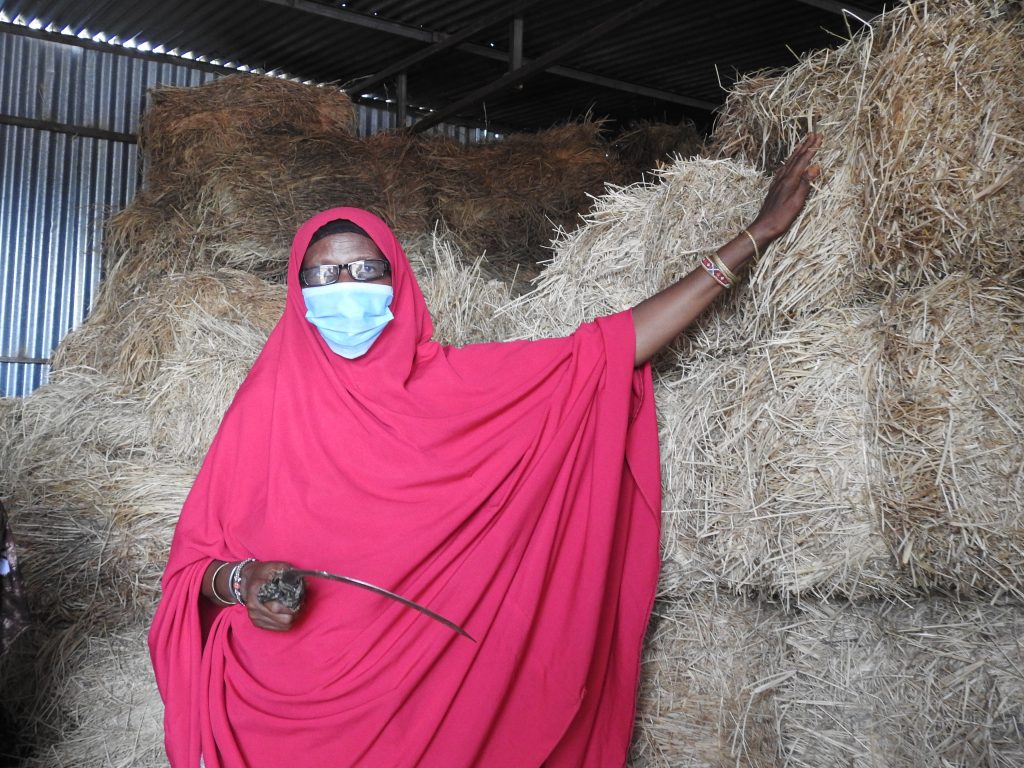
Members of the Tullu Women’s Group hail from Sololo Ward, a community of livestock keepers in the heart of Marsabit County, in Northern Kenya. The group faced a challenge affecting livestock in their ward. During the rainy seasons, livestock had plenty to eat. But during the dry seasons, they lost weight or starved to death due to drought and the arid land in the region. The loss of livestock caused a deep strain on families’ livelihoods, with some families losing their entire source of income. What’s more, during this time, many families had to rely on businesses that transported hay on trucks from far-off areas, which increased its price.
In 2018, Fatuma Guyo, the group’s chair, and the 30 other members came together to store and sell their own hay during the dry seasons to save on costs and prevent the starvation of their livestock. The group kicked off its new business with a five-acre piece of land. But they experienced problems with efficiency. Their use of a sickle to harvest the hay and bailing it manually took a lot of time. They also lacked a good storage facility. During the rainy seasons, their hay would rot from the moisture content.

In 2019, the Feed the Future Kenya Livestock Market Systems Activity circulated an advertisement in Sololo offering grants to businesses. The Tullu Women’s Group applied for a grant, and, after passing a feasibility assessment, received a USD 3,500 grant. The group used the grant to purchase a hay cutter and bailer, which reduced the time they spent harvesting and storing the hay. Together, they also built a modern storehouse with wooden stands to ensure that the hay remained in good condition, especially during the rainy seasons.
In addition, the Activity trained the group’s members in fodder production. This training enabled them to establish, harvest, preserve, and trade in the pasture. The group now contacts other hay farmers to stockpile hay at a cost as well as livestock keepers to sell surplus hay. Since 2019, the group has produced 800 bales of hay and sold 30 bales for roughly US$5.00 each. The group now has more than 1,000 bales of hay stored and another 300 bales of hay not yet harvested.
This business enabled each member to start personal businesses like selling grains, eggs, or beekeeping. As a result, their household incomes have grown even more. “I took up a loan of $600 from the group to plant additional hay in my farm. This way, I am assured of healthy family meals and can afford school fees,” said Fatuma Guyo, chair of the Tullu Women’s Group.
Fatima’s group plans to diversify its trade into horticulture and fattening cows for sale. The Activity linked the group to dairy farmers in Marsabit County for the sale of hay. To date, the group has sold 500 bales of hay for US$2,000. The group also bought 500 bales of hay from their own members, who then used the money to support their households and cover costs such as food and medical bills. In addition, the cooperative actively loans to the members for business and emergencies.
Learn more about the Feed the Future Kenya Livestock Market Systems Activity.
Learn more about our work in Kenya.





